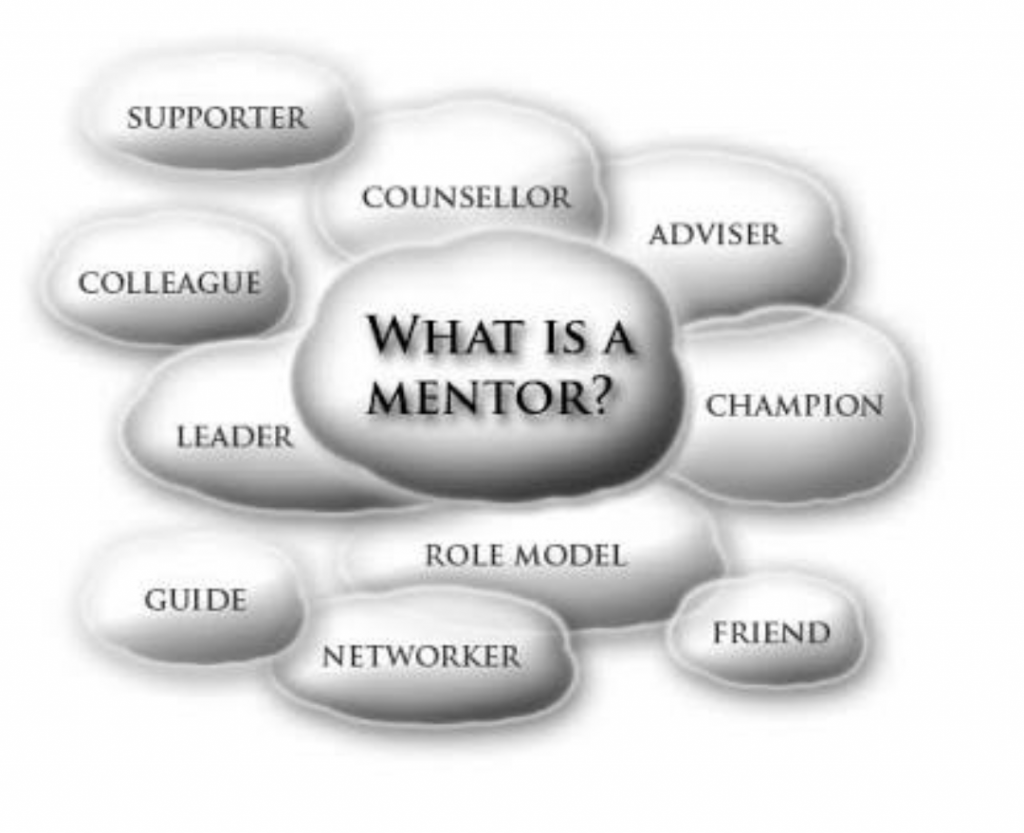
What is a Mentor?
A mentor is someone to talk with, here’s a definition mentorship. In this post, we talk about how a mentor can aid us in the area of work or career. I distinguish a mentor from a friend in the following ways, mentor/mentee relationships tend to be characterized by the:
- mentee asking mentor for help
- mentor listening and the mentee talking
- time spent and topics covered, are mutually agreed upon ahead of time
- the direction and duration of the relationship is openly discussed
They are like a friendship because they include:
- mutual respect and a desire for confidentiality
- each person gains something from the relationship
How Do I Find a Mentor?
If you’ve never a mentor, you may be wondering how to find one. I suggest you talk to friends and colleagues about their experience with it. Ask questions and listen carefully to their answers. How did they get their mentor? What were they trying to accomplish with that person? How long did the relationship last? How did it end (if it’s not ongoing)? If you find someone who’s had a mentor, be sure to add them to your network (i.e. LinkedIn). If not, keep looking. Multiple perspectives are helpful in identifying what might work for you. Test out what you need, ask someone about their experience and then try finding a mentor for yourself.
What Can I Do to Help Improve the Mentor/Mentee Relationship?
When looking for work/career guidance, think first not just about someone’s experience, but also the kind of personality that helps you learn. I need someone who listens well and asks questions. Generally, I’m not looking for advice; I want to hear myself say things out loud to an experienced ear. I tend to be introverted and process information internally, but my brain can take me “unhelpful” places (e.g. negative self-talk.) Having a mentor works for me because I get to process my thoughts and feeling about work out loud, with a trusted resource.
Remember to think about who you are and what you need. How can I grow?
I’m Too Shy ( or Stubborn) to Ask Someone to Help Me?
I get this. I was raised to believe that asking for help was a sign of weakness. I have been hindered in my life by this, but hear me…asking for help is a sign of strength. The risk of asking may seem overwhelming, but it’s worth it. (When I practiced taking small risks, it was easier to take bigger ones!) There are ways to the ‘ask’ a bit easier:
- do research on various people/choices
- be clear about what you want help with
- understand how to set expectations with the mentor
- have a deep respect for the mentor’s time and efforts
What If It Doesn’t Work Out?
Unlike personal relationships, a mentor/mentee relationship can have an end that is openly discussed. I tell my mentees that they will likely move on from me at some point and they need not explain or worry. I expected to end relationships with my mentors and I expect my relationships with mentees to end. Some mentees become friends, some move on and I never hear from them again. It’s all good.
The key is to set boundaries and expectations at the beginning of the mentoring connection.
- Establish ground rules. In my case, the mentee is responsible for reaching out to me, I don’t reach out to them.
- Set a trial period. I like 3-4 sessions or two months. At the end of the trial period, a candid discussion (initiated by the mentee) will establish what’s working and what isn’t. If the expectation of a “check-in” is set in the beginning, changing the relationship will be easier
- Be honest. If the connection is not developing in a way that makes you comfortable, that’s okay. First examine your interaction. Are you defensive? Is the mentor giving unwanted advice? Try to see where the communication has gone astray and determine if there’s a way to improve it.
- Be professional. If the interaction isn’t working and you feel it can’t be repaired, thank your mentor for the time and energy. Part amicably. The last thing I want is to have discomfort with someone I admire and respect. That doesn’t reflect well on me.
Let Me Know How it Goes
I hope you will share your experiences about this process. Every relationship will be a little different, but the benefits to both parties are tangible. I believe in you. Go for it.
Image Credit: Getting a mentor

What do you think?